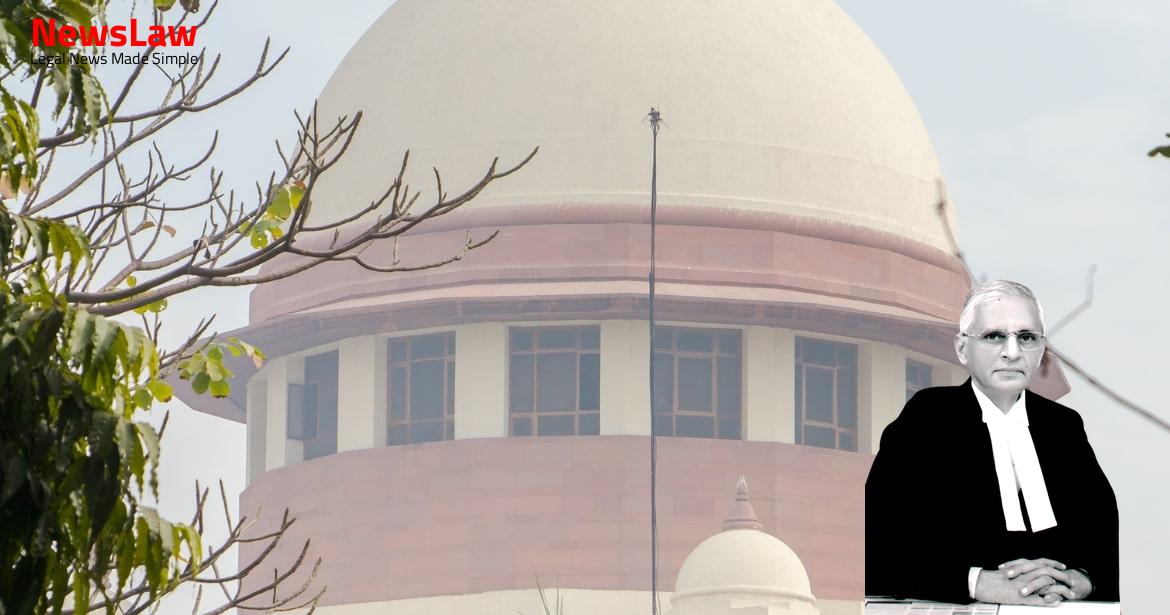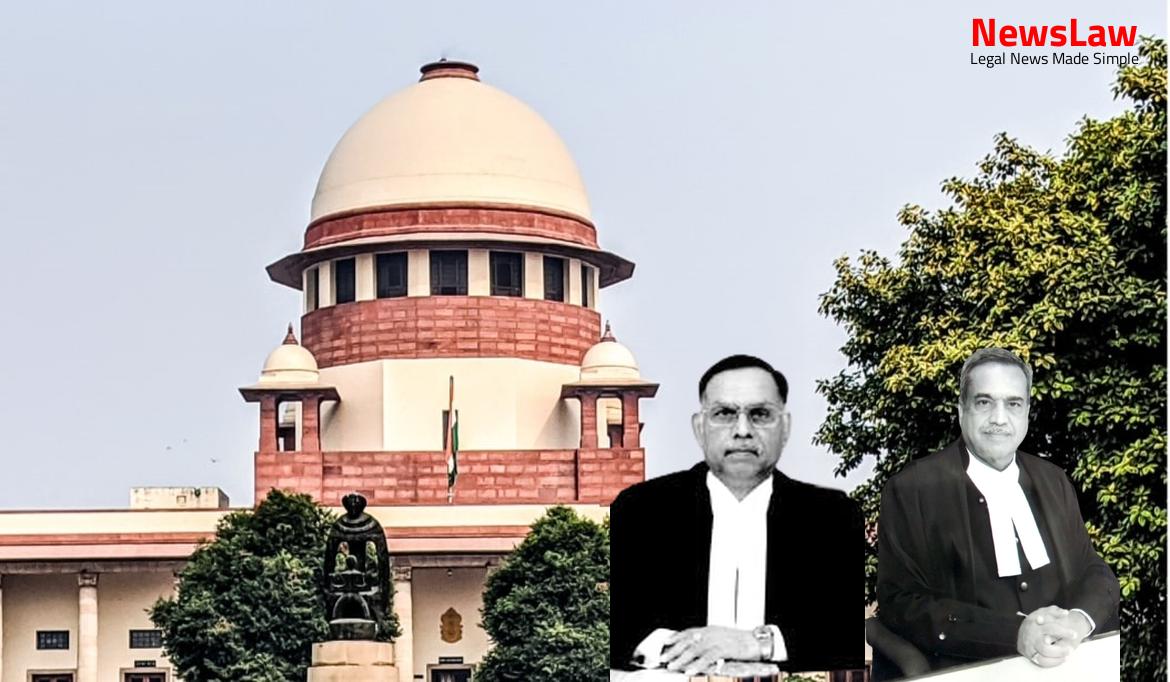The present writ petition under Article 32 of the Constitution of India has been filed by the writ petitioner herein seeking the release of her husband on default bail. Every Supplementary chargesheet filed, as per the writ petitioner herein, is an attempt to ensure that her husband is not released on default bail. The Respondent has admitted in writing in the supplementary chargesheet that the investigation is still pending, and in light of the same the trial court ought not to have issued process and remanded the petitioner’s husband under Section 309 Cr.PC. Whether the filing of such a chargesheet without completing the investigation will extinguish the right of an accused for grant of default bail?
Also Read: https://newslaw.in/supreme-court/modification-of-final-order-for-placement-of-sale-proceeds/
A preliminary objection has been raised by the learned counsel appearing on behalf of the respondent stating that the present writ is not maintainable before this court on grounds that no relief at such an early stage of the investigation can be granted. (3) Without prejudice to the powers conferred on the Supreme Court by clauses (1) and (2), Parliament may by law empower any other court to exercise within the local limits of its jurisdiction all or any of the powers exercisable by the Supreme Court under clause (2).
:- “A constitutional democracy can survive when citizens have an assurance that the Rule of Law will protect their rights and liberties against any invasion by the State and that judicial remedies would be available to ask undiluted searching questions and expect answers when a citizen has been deprived of these, most precious rights.” Further, another Constitution Bench of this Court in the case of K.K Kochunni, Moopil Nayar vs State of Madras & Ors.
State of Madras [1950 SCC 436 1950
Also Read: https://newslaw.in/case-type/civil/land-resumption-and-annulment-setting-aside-impugned-orders/
SCR 594] that under the Constitution this Court is constituted the protector and guarantor of fundamental rights and it cannot, consistently with the responsibility so laid upon it, refuse to entertain appli- cations seeking the protection of this Court against infringement of such rights, although such applications are made to this Court in the first instance without resort to a High Court having concurrent jurisdiction in the matter. In such circumstance, we are not inclined to agree with the preliminary objections raised by the learned counsel for the respondent regarding the maintainability of this petition under Article 32 of the Constitution and the said objection, therefore, stands rejected. Under Section 167 of the Code of Criminal Procedure, 1898, which was the Act that governed criminal procedure before the enactment of CrPC presently in force, an accused, either under judicial or police custody, could be remanded only for a maximum period of 15 days.
– (1) Whenever any person is arrested and 9 detained in custody, and it appears that the investigation cannot be completed within the period of twenty-four hours fixed by Section 61, and there are grounds for believing that the accusation or information is well-founded, the officer in charge of the police station or the police officer in charge of the police station or the police officer making the investigation if he is not below the rank of sub-inspector shall forthwith transmit to the nearest Magistrate a copy of the entries in the diary hereinafter prescribed relating to the case, and shall at the same time forward the accused to such Magistrate.
If he has not jurisdiction to try the case or commit it for trial, and considers further detention unnecessary, he may order the accused to be forwarded to a Magistrate having such jurisdiction : Provided that no Magistrate of the third class, and no Magistrate of the second class not specially empowered in this behalf by the State Government shall authorise detention in the custody of the police. This lack of time, because of the abovementioned provision of the 1898 Act, led to a widespread practice wherein investigating officers would file preliminary chargesheets after the expiry of the remand period, and subsequently request the magistrate Section 10 to postpone the commencement of trial and remand the accused under 344 of the 1898 Act for a further time, till the final chargesheet was filed. Quite often, a complicated investigation cannot be completed within 15 days, and if the offence is serious, the police naturally insist that the accused be kept in custody.
In the Fourteenth Report, the Law Commission doubted if such an order could be made under section 344, as that section is intended to operate only after a magistrate has taken cognizance of an offence, which can be properly done only after a final report under section 173 has been received, and not while the investigation is still proceeding.
Like the earlier Law Commission, we feel that 15 days is perhaps too short and we propose therefore to follow the recommendation in the Fourteenth Report that the maximum period under section 167 should be fixed at 60 days. If he has no jurisdiction to try the case or commit it for trial, and considers further detention unnecessary, he may order the accused to be forwarded to a Magistrate having such jurisdiction Provided that- (a) no Magistrate shall authorise detention in any custody un- der this section unless the accused is produced before him; (b) no Magistrate of the second class not specially empowered in this behalf by the High Court shall authorise detention in the custody of the police.
This report took into consideration the recommendations made in the earlier l Reports of the Commission dealing with specific matters namely, the Fourteenth, Twenty-fifth, Thirty-second, Thirty- third, Thirty-sixth, Thirty-seventh and Fortieth Reports. The Law Commission re-emphasised the need to guard against the misuse of Section 344 of the 1898 Code by filing “preliminary reports” for remanding the accused beyond the statutory period prescribed under Section 167. It was in this backdrop that Section 167(2) was enacted within the present day CrPC, providing for time-limits on the period of remand of the accused, proportionate to the seriousness of the offence committed, failing which the accused acquires the indefeasible right to bail.” Further, this legal position was again reiterated in Satendar Kumar Antil vs CBI & Anr. Thus, a duty is enjoined upon the agency to complete the investigation within the time prescribed and a failure would enable the release of the accused. As a consequence of the right flowing from the said provision, courts will have to give due effect to it, and thus any detention beyond this period would certainly be illegal, being an affront to the liberty of the person concerned.
There is a statutory time frame then prescribed 16 for remand of the accused for the purposes of investigation, however, the same cannot extend beyond 90 days, as provided under Section 167(2)(a) (i) in cases where the investigation relates to an offence punishable with death, imprisonment for life or imprisonment for a term of not less than 10 years and 60 days, as provided under Section 167(2)(a)(ii), where the investigation relates to any other offence. It is thus axiomatic that first investigation is to be completed, and only then can a chargesheet or a complaint be filed within the stipulated period, 17 and failure to do so would trigger the statutory right of default bail under Section 167(2) of Cr.PC. Assistant Director, Directorate of Enforcement, it was held that the right of default bail under section 167(2) CrPC was held to be an indefeasible right of the accused even in matters under PMLA. We have carefully perused the judgments relied upon by the learned counsel for the respondent, however, none of the judgments relied upon permit the abuse of remand under Section 309(2) of the CrPC by permitting the filing of incomplete chargesheets only to scuttle the right of statutory bail. Without completing the investigation of a case, a chargesheet or prosecution complaint cannot be filed by an investigating agency only to deprive an arrested accused of his right to default bail under Section 167(2) of the CrPC. This factual position was missed by the trial court, and instead of offering default bail to the accused, the trial court mechanically accepted the incomplete chargesheets filed by the Investigating Agency, and further continued the remand of the accused beyond the maximum period specified.
The process of remand and custody, in their practical manifestations, create a huge disparity of power between the investigating authority and the accused.
(KRISHNA MURARI)…………………………………,J.
Case Title: RITU CHHABARIA Vs. UNION OF INDIA (2023 INSC 436)
Case Number: W.P.(Crl.) No.-000060 / 2023



